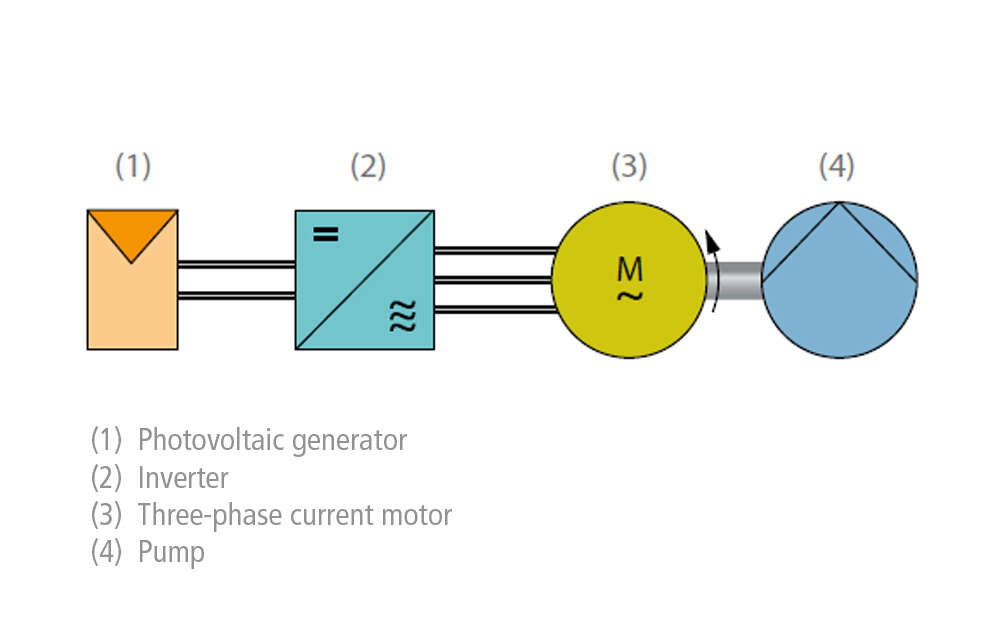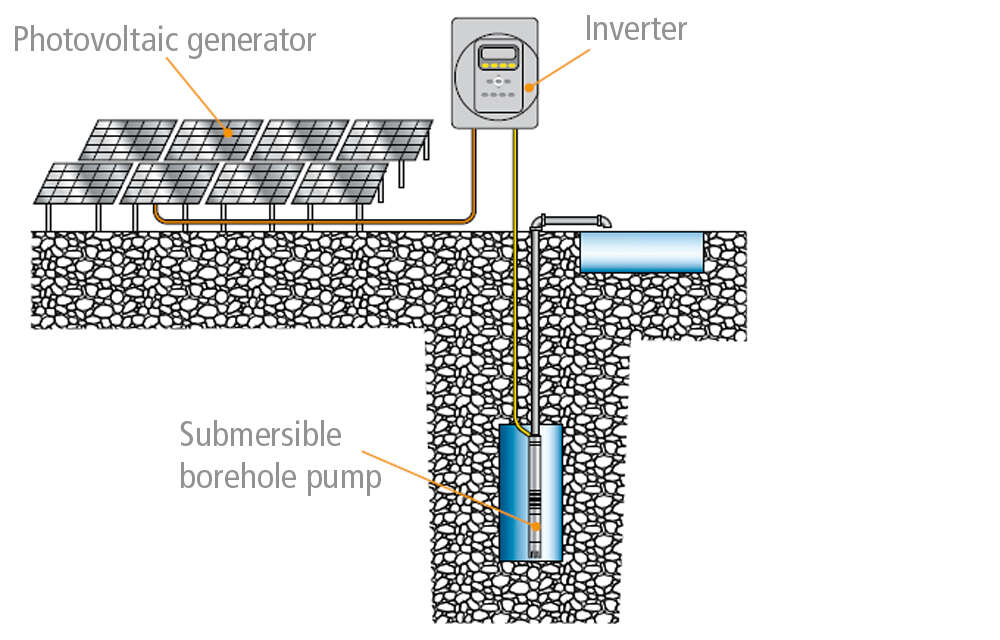Photovoltaic pump system
Photovoltaic pump systems convert solar energy directly into electricity in order to drive pumps with an electric motor. These systems are used mainly for cattle water troughs, irrigation or supplying drinking water in sunny areas. See Figs. 1, 2 Photovoltaic pump system

Fig. 1 Photovoltaic pump system: General design with pump driven by a three-phase current motor
The use of photovoltaic pump systems is particularly useful and makes economic sense in situations where no mains electricity is available. Unlike other photovoltaic systems, it is almost always possible to avoid the need to store electric energy. To equalise the fluctuating availability of solar energy, water can be stored in a high-level tank.
Alternatives to photovoltaic pump systems include pump systems driven by a combustion engine or by wind power.
In contrast to solar thermal pump systems, photovoltaic systems convert the solar energy into direct current and voltage by the photovoltaic effect. A photovoltaic generator consists of one or, usually, a number of photovoltaic modules. These in turn are assembled from several solar cells. The photovoltaically generated energy can be used directly to drive pumps with d.c. motors (brushed d.c. motors, or brushless electronically commutated d.c. motors). To operate pumps with three-phase motors by means of photovoltaic energy, an inverter is required which converts direct current and direct current voltage into three-phase alternating current and alternating current voltage. See Figs. 1, 2 Photovoltaic pump system

Fig. 2 Photovoltaic pump system: Drive of a submersible borehole pump
Types of pump used are centrifugal pumps and positive displacement pumps, e.g. progressive cavity pumps.
The operating point of the centrifugal pump must be matched to the available solar energy. The rotational speed of the pump must be adjusted for this purpose. It is advisable to control the operating point at which the voltage and current of the photovoltaic generator are at maximum performance (known as maximum power point tracking (MPP tracking)).